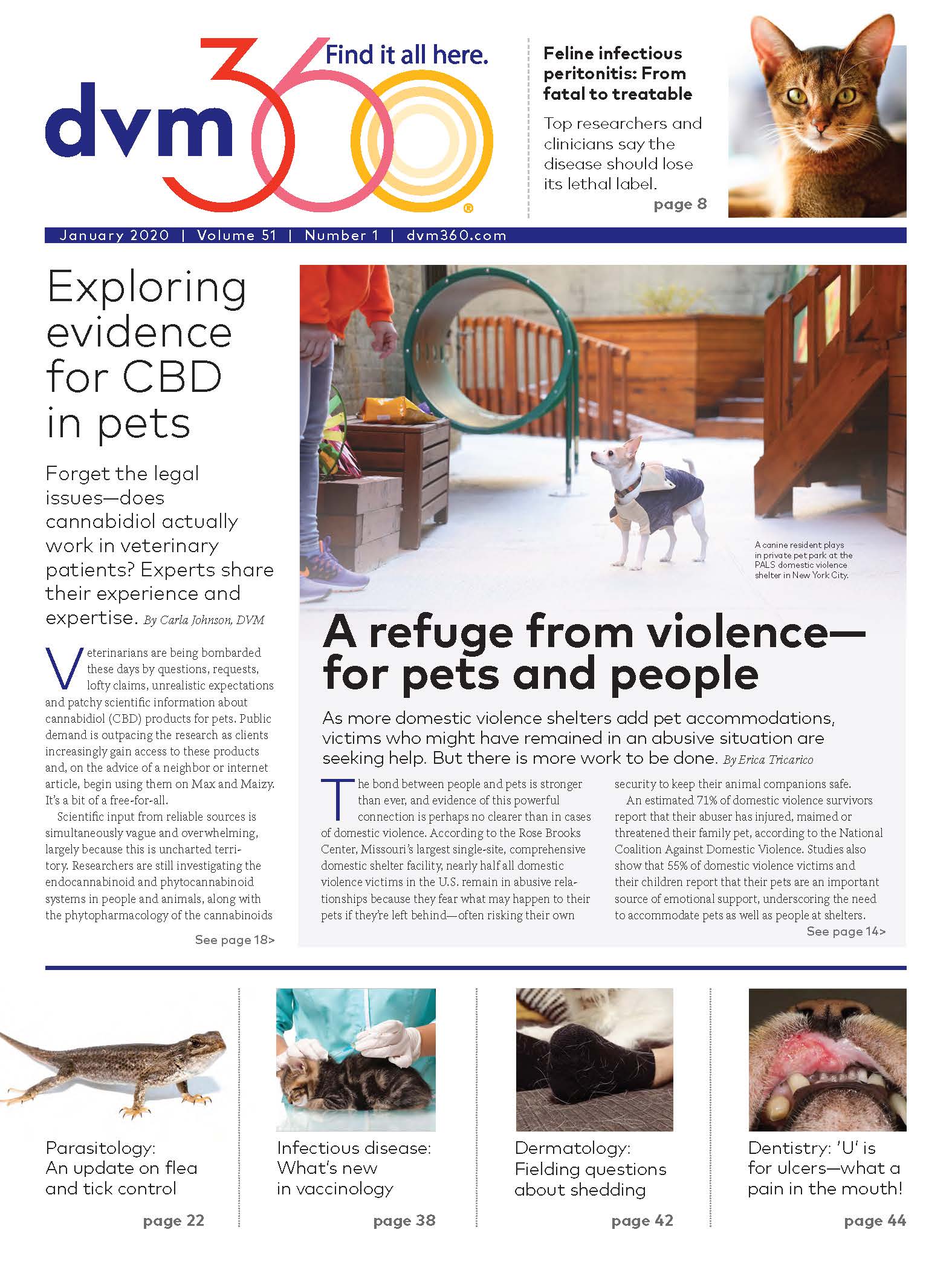New cancer screening test for dogs now available
The simple blood test employs technology that looks for very early nucleosomic markers of cancer in dogs.
pololia/stock.adobe.com

Cancer is the most common cause of death in dogs over 2 years of age in the United States,1 with up to half of all dogs over age 10 developing the disease at some point.2 When a cancer diagnosis is suspected, the dog must undergo a variety of costly, time-consuming, and potentially painful diagnostic tests.
Multinational epigenetics company VolitionRx Limited (through its subsidiary Volition Veterinary Diagnostics Development LLC) aims to help veterinarians streamline the cancer diagnostic process with the release of its first product, the Nu.Q Vet Cancer Screening Test. This enzyme-linked immunosorbent assay (ELISA)–based test is noninvasive, inexpensive, and easy to use.
Measuring nucleosomes
When a person or dog has cancer, nucleosomes from the cancer cells are released into the blood and can be measured using antibodies specific to nucleosomes. Nu.Q Vet measures and analyzes the nucleosomes to identify patients that may have cancer. A positive result must then be confirmed by follow-up testing, such as a biopsy or imaging.
In a study of over 330 dogs, the test showed 100% specificity, identifying 74% of lymphomas and 89% of hemangiosarcomas when compared with healthy controls.3,4 These cancer types account for about one-third of all cancers seen in dogs.
Unlike in humans, few routine cancer screening tests are available for animals, said Heather Wilson-Robles, DVM, a professor at Texas A&M University College of Veterinary Medicine & Biomedical Sciences and chief medical officer at Volition Veterinary. “This simple, low-cost blood test can help streamline the diagnostic process and shorten the path to diagnosis thereby allowing treatment (be that therapy or surgery) to be initiated earlier, even before symptoms appear, increasing the chance of the dog’s survival and its quality of life.”
When to use it
Volition’s new product may be used during annual wellness checks in older dogs, in cases of suspected canine cancer, and in younger breeds that are at high risk for the development of cancer, including golden retrievers, boxers, flat-coated retrievers, beagles, Bernese mountain dogs, and others, according to a company press release.
“The launch of the Nu.Q Vet Cancer Screening Test is a stand-out moment in our 10-year history and an extremely important milestone for our company. It demonstrates that our Nu.Q platform has now attained both the reliability and reproducibility to launch in an independent laboratory,” said Cameron Reynolds, chief executive officer of Volition.
Volition’s focus during this initial launch phase will be on driving awareness about the test to veterinary oncologists nationwide as well as to general practice veterinarians in Texas (their Beta market) via social media, direct mail, lunch-and-learns, and a webinar.
US veterinarians can order the Nu.Q Vet Cancer Screening Test from the GI Lab at Texas A&M University College of Veterinary Medicine & Biomedical Sciences. The cost is $122 per test.
Interested in learning more? Click here or register for this webinar hosted by Wilson-Robles and Sue Ettinger, DVM, DACVIM (Oncology), on December 9 at 7 pm CT.
References
- 1. Fleming JM, Creevy KE, Promislow DE. Mortality in North American dogs from 1984 to 2004: an investigation into age-, size-, and breed-related causes of death. J Vet Intern Med. 2011;25(2):187-198. doi:10.1111/j.1939-1676.2011.0695.x
- 2. Davis BW, Ostrander EA. Domestic dogs and cancer research: a breed-based genomics approach. ILAR J. 2014;55(1):59-68. doi:10.1093/ilar/ilu0173.
- 3. Dolan C, Wilson-Robles H, Miller T, et al. Characterizing circulating nucleosomes in the plasma of dogs with lymphoma. Presented at the 2020 Veterinary Cancer Society Virtual Conference. October 15-17.
- 4. Wilson-Robles H, Miller T, Jarvis J, et al. Characterizing circulating nucleosomes in the plasma of dogs with hemangiosarcoma. Presented at the 2020 Veterinary Cancer Society Virtual Conference. October 15-17.

Veterinary Heroes: Patricia Kennedy Arrington, DVM, CVFP
December 1st 2024As a leader in 24-hour veterinary care and a champion for women in the field, Patricia Kennedy Arrington, DVM, CVFP, has dedicated her 50-year career to transforming veterinary medicine and inspiring future practitioners.
Read More
Veterinary Heroes: Ann E. Hohenhaus, DVM, DACVIM (Oncology, SAIM)
December 1st 2024A trailblazer in small animal internal medicine, Ann E. Hohenhaus, DVM, DACVIM (Oncology, SAIM), has spent decades advancing the profession through clinical expertise, mentorship, and impactful communication.
Read More